21 start with P start with P

A central current in the history of democratic politics is the tensions between the political culture of an informed citizenry and the potentially antidemocratic impulses of the larger mass of individuals who are only marginally involved in the political world. Given the public’s low level of political interest and knowledge, it is paradoxical that the democratic system works at all.
In The Paradox of Mass Politics W. Russell Neuman analyzes the major election surveys in the United States for the period 1948–1980 and develops for each a central index of political sophistication based on measures of political interest, knowledge, and style of political conceptualization. Taking a fresh look at the dramatic findings of public apathy and ignorance, he probes the process by which citizens acquire political knowledge and the impact of their knowledge on voting behavior.
The book challenges the commonly held view that politically oriented college-educated individuals have a sophisticated grasp of the fundamental political issues of the day and do not rely heavily on vague political symbolism and party identification in their electoral calculus. In their expression of political opinions and in the stability and coherence of those opinions over time, the more knowledgeable half of the population, Neuman concludes, is almost indistinguishable from the other half. This is, in effect, a second paradox closely related to the first.
In an attempt to resolve a major and persisting paradox of political theory, Neuman develops a model of three publics, which more accurately portrays the distribution of political knowledge and behavior in the mass population. He identifies a stratum of apoliticals, a large middle mass, and a politically sophisticated elite. The elite is so small (less than 5 percent) that the beliefs and behavior of its member are lost in the large random samples of national election surveys, but so active and articulate that its views are often equated with public opinion at large by the powers in Washington. The key to the paradox of mass politics is the activity of this tiny stratum of persons who follow political issues with care and expertise. This book is essential reading for concerned students of American politics, sociology, public opinion, and mass communication.
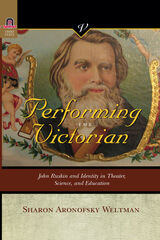
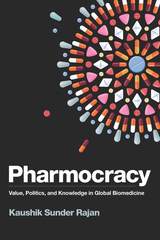
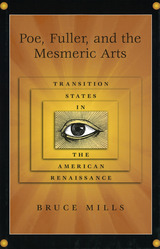
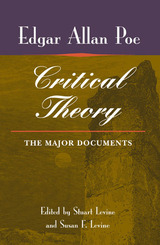
What was consistent in Poe's work was not a single theory, but rather wit, playfulness, concern for the strong effect, a bin of recyclable allusions, anecdotes and quotations, and a craftsman's discipline. Poe's writing on theory is of a piece with his fiction, poetry, and journalism. The Levines explain how these critical statements also tie tightly to the social, political, economic, and technological history of the world in which Poe lived.
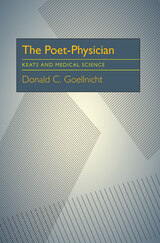
For six years of his brief like, Keats studied medicine, first as an apprentice in Edmonton and then as a medical student at Guy’s Hospital in London. His biographers have generally glossed over this period of his life, and critics have ignored it and denied the influence of medical training on his poetry and thought.
In this challenging reappraisal, Goellnicht argues that Keats’ writings reveal a distinct influence of science and medicine. Goellnicht researches Keats’ course work and texts to reconstruct the milieu of the early nineteenth-century medical student. He then explores the scientific resonances in Keats’’ individual works, and convincingly shows the influence of his early medical training.
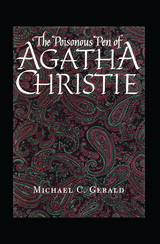
Poisoning occurs in over half of Agatha Christie's many novels and stories. In fact, she used a larger number and broader selection of poisons and medicines, for a wider variety of purposes, with greater frequency, ingenuity, and scientific accuracy than any other detective fiction writer. Yet very little has been written on the use of drugs, poisons, and chemicals in Christie's fiction.
The Poisonous Pen of Agatha Christie entertainingly and authoritatively fills this gap. Michael Gerald explores the use of poisons and drugs in Christie's fiction not only to commit murder and suicide but also to incapacitate a victim, alter behavior, treat disease, or support addiction. He also analyzes her views, as expressed in her fiction and autobiography, on drug addiction, the health professions, the value of medicines, and scientific discoveries.
Especially valuable is Gerald's exhaustive listing of all drugs, poisons, and chemicals mentioned in Christie's novels and stories, with references to the work(s) in which each appears and the ways in which each is used. Other tables list all the novels and short stories and the chemicals that are used in each. Throughout, the properties of all drugs are clearly explained so that the reader needs no special scientific or medical knowledge.
The Poisonous Pen of Agatha Christie illuminates the fictional uses Christie made of her real-life experiences as a hospital drug dispenser and as a provider of nursing care. It will be of interest to fans and scholars alike.
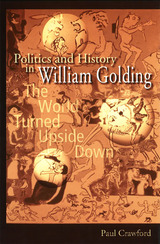
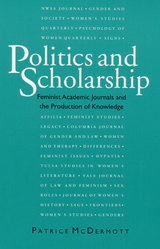
-- J'nana Morse Sellery, coauthor of Elizabeth Bowen: A Bibliography
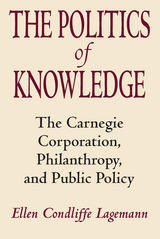
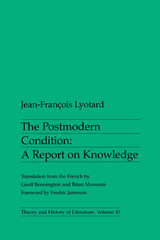
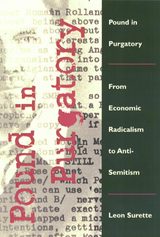
From 1931 to 1945 Pound's poetry took a back seat to his activities as an economic reformer and propagandist for the corporate state. Pound believed he had a simple and practical solution for the economic woes of the world brought on by the Great Depression, and he became increasingly preoccupied with capturing political power for the economic reform he envisioned.
As the world spiraled toward war, Pound's program of economic reform foundered and he gradually succumbed to a paranoid belief in a Jewish conspiracy. Through an incisive analysis of Pound's correspondence and writings, much of it previously unexamined, Surette shows how this belief fostered the virulent anti-Semitism that pervades his work-–both poetry and prose-–from this time forward.

If knowledge is power, then John Hird has opened the doors for anyone interested in public policymaking and policy analysis on the state level. A beginning question might be: does politics put gasoline or sugar in the tank? More specifically, in a highly partisan political environment, is nonpartisan expertise useful to policymaking? Do policy analysts play a meaningful role in decision making? Does policy expertise promote democratic decision making? Does it vest power in an unelected and unaccountable elite, or does it become co-opted by political actors and circumstances? Is it used to make substantive changes or just for window-dressing?
In a unique comparative focus on state policy, Power, Knowledge, and Politics dissects the nature of the policy institutions that policymakers establish and analyzes the connection between policy research and how it is actually used in decision making. Hird probes the effects of politics and political institutions—parties, state political culture and dynamics, legislative and gubernatorial staffing, partisan think tanks, interest groups—on the nature and conduct of nonpartisan policy analysis. Through a comparative examination of institutions and testing theories of the use of policy analysis, Hird draws conclusions that are more useful than those derived from single cases.
Hird examines nonpartisan policy research organizations established by and operating in U.S. state legislatures—one of the most intense of political environments—to determine whether and how nonpartisan policy research can survive in that harsh climate. By first detailing how nonpartisan policy analysis organizations came to be and what they do, and then determining what state legislators want from them, he presents a rigorous statistical analysis of those agencies in all 50 states and from a survey of 800 state legislators. This thoroughly comprehensive look at policymaking at the state level concludes that nonpartisan policy analysis institutions can play an important role—as long as they remain scrupulously nonpartisan.
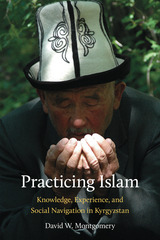
Through his years of on-the-ground research, Montgomery assembles both an anthropology of knowledge and an anthropology of Islam, demonstrating how individuals make sense of and draw meanings from their environments. He reveals subtle individual interpretations of the religion and how people seek to define themselves and their lives as “good” within their communities and under Islam.
Based on numerous in-depth interviews, bolstered by extensive survey and data collection, Montgomery offers the most thorough English-language study to date of Islam in post-Soviet Kyrgyzstan. His work provides a broad view into the cognitive processes of Central Asian populations that will serve students, researchers, and policymakers alike.
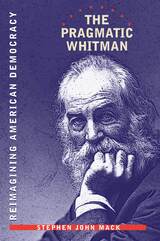
In this surprisingly timely book, Stephen Mack examines Whitman’s particular and fascinating brand of patriotism: his far-reaching vision of democracy. For Whitman, loyalty to America was loyalty to democracy. Since the idea that democracy is not just a political process but a social and cultural process as well is associated with American pragmatism, Mack relies on the pragmatic tradition of Emerson, James, Dewey, Mead, and Rorty to demonstrate the ways in which Whitman resides in this tradition.
Mack analyzes Whitman's democratic vision both in its parts and as a whole; he also describes the ways in which Whitman's vision evolved throughout his career. He argues that Whitman initially viewed democratic values such as individual liberty and democratic processes such as collective decision-making as fundamental, organic principles, free and unregulated. But throughout the 1860s and 1870s Whitman came to realize that democracy entailed processes of human agency that are more deliberate and less natural—that human destiny is largely the product of human effort, and a truly humane society can be shaped only by intelligent human efforts to govern the forces that would otherwise govern us.
Mack describes the foundation of Whitman’s democracy as found in the 1855 and 1856 editions of Leaves of Grass, examines the ways in which Whitman’s 1859 sexual crisis and the Civil War transformed his democratic poetics in “Sea-Drift,” “Calamus,” Drum-Taps,and Sequel to Drum-Taps, and explores Whitman’s mature vision in Democratic Vistas, concluding with observations on its moral and political implications today. Throughout, he illuminates Whitman's great achievement—learning that a full appreciation for the complexities of human life meant understanding that liberty can take many different and conflicting forms—and allows us to contemplate the relevance of that achievement at the beginning of the twenty-first century.

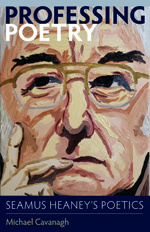
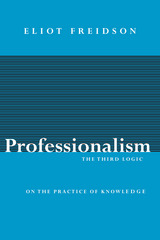
Freidson then appraises the present status of professionalism, exploring how traditional and national variations in state policy and organization are influencing the power and practice of such professions as medicine and law. Widespread attacks by neoclassical economists and populists, he contends, are obscuring the social value of credentialism and monopolies. The institutions that sustain professionalism in our world are simply too useful to both capital and state to dismiss.
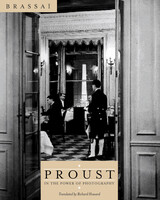
Drawing on his own experience as a photographer and author, Brassaï discovers a neglected aspect of Proust's interests, offering us a fascinating study of the role of photography both in Proust's oeuvre and in early-twentieth-century culture. Brassaï shows us how Proust was excessively interested in possessing portraits of his acquaintances and how the process by which he remembered and wrote was quite similar to the ways in which photographs register and reveal life's images. This book-beautifully translated by Richard Howard-features previously obscure photographs from Brassaï's High Society series and offers a rare glimpse into two of France's most fascinating artistic minds.
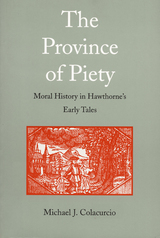
Informed by comprehensive historical research, the author shows that Hawthorne was steeped in New England historiography, particularly the sermon literature of the seventeenth century. But, as Colacurcio shows, Hawthorne did not merely borrow from the historical texts he deliberately studied; rather, he is best understood as having written history. In The Province of Piety, originally published in 1984 (Harvard University Press), Hawthorne is seen as a moral historian working with fictional narratives—a writer brilliantly involved in examining the moral and political effects of Puritanism in America and recreating the emotional and cultural contexts in which earlier Americans had lived.

This book offers an analysis of ten works by the leading twentieth-century Japanese novelist Natsume Soseki (1867–1916), by one of Japan's most distinguished psychiatrists. Dr. Takeo Doi, whose Amae no Kozo is well known in the West in its English translation, The Anatomy of Dependency, describes the principal characters of Soseki's novels from a psychological point of view, treating them as case studies and demonstrating the clarity and accuracy of Soseki's psychological insights.
This volume, one of the few pieces of literary criticism ever translated from the Japanese, will introduce the reader to these novels, some of which are not available in English. Furthermore, the book is a penetrating account of the universal problems faced by individuals coping with a rapidly modernizing society.
READERS
Browse our collection.
PUBLISHERS
See BiblioVault's publisher services.
STUDENT SERVICES
Files for college accessibility offices.
UChicago Accessibility Resources
home | accessibility | search | about | contact us
BiblioVault ® 2001 - 2024
The University of Chicago Press









